Categories > Guides and Tips

Top 15 Thailand Travel Tips You Must Know
- Respect the king and the royal family
- Dress appropriately for temples
- Learn basic Thai phrases
- Carry cash in smaller denominations
- Practise the wai
- Avoid public displays of affection
- Remove shoes before entering homes and temples
- Follow Buddhist customs in temples
- Eat local street foods
- Use local transportation
- Bargain at markets and street vendors
- Use mosquito repellent and sunscreen
- Be cautious of street food hygiene
- Take precautions against scams
- Respect local laws and customs
Whether you’re exploring bustling cities, relaxing on pristine beaches, or immersing yourself in ancient temples in Thailand, having some essential travel tips can enhance your experience and make your journey even more memorable.
In this guide, we present the ultimate Thailand travel tips across various categories, including general tips, cultural insights, budget-friendly advice, health precautions, and safety measures.
So, read on to ensure a smooth and enjoyable trip as you navigate this enchanting Southeast Asian destination!
Respect the king and the royal family
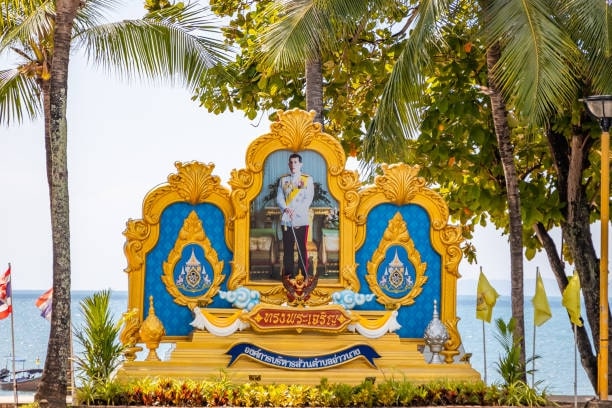
Thailand holds deep respect and reverence for its monarchy so it’s important to show your respect as well. Avoid speaking ill of the King or any members of the Royal Family.
Be mindful of cultural sensitivities and refrain from any disrespectful actions or gestures.
Local tip: To show your respect, observe and appreciate the importance of the monarchy in Thai culture.
Dress appropriately for temples
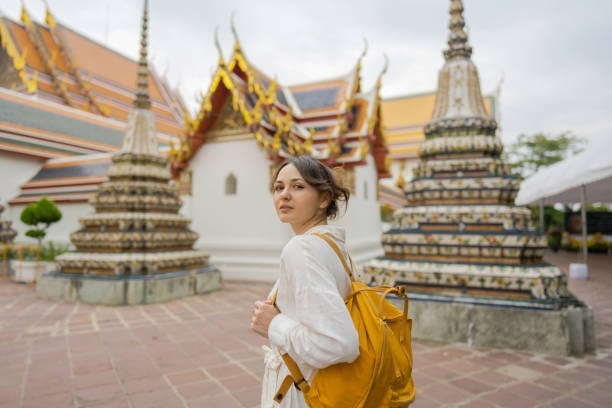
When visiting temples, it’s crucial to dress modestly and respectfully. Both men and women should cover their shoulders and knees.
Wearing loose-fitting and lightweight clothing is advisable to stay comfortable in the tropical climate. Remember to remove your shoes before entering temple buildings as a sign of respect.
Local tip: It’s also advisable to choose lightweight and breathable fabrics to cope with the warm weather.
Learn basic Thai phrases

While English is spoken in many tourist areas, learning a few basic Thai phrases can go a long way in connecting with the locals and showing your appreciation for their culture.
Simple greetings like “hello” (sawasdee), “thank you” (khob khun), and “goodbye” (bai-bai) are easy to learn and will be greatly appreciated by the Thai people.
Local tip: Explore language learning resources specific to learning Thai, such as phrasebooks, language learning apps, or online tutorials.
These resources often provide useful phrases, audio pronunciations, and interactive exercises to help you practise.
Carry cash in smaller denominations
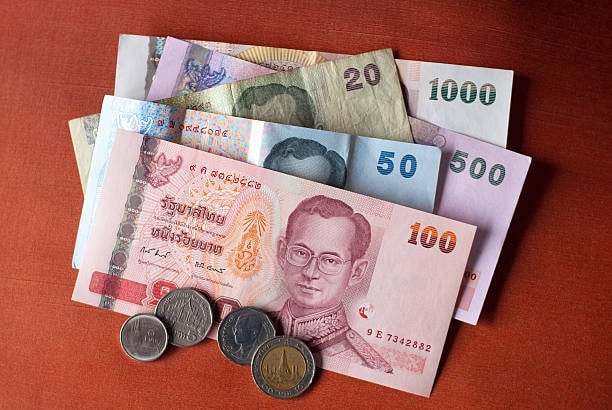
Having smaller denominations of Thai Baht can be handy, especially in markets, street stalls, and smaller establishments that may not accept credit cards.
ATMs are also widely available, so you can withdraw larger bills when needed.
Local tip: Do not carry large bills only, as it can make transactions difficult. Thai locals recommend carrying smaller denominations of cash, such as 20, 50, and 100 Baht notes.
By having smaller bills, you can ensure smooth transactions and avoid any inconvenience.
Note:
- Carrying banknotes in the back pocket of one’s trousers is considered impolite and discouraged because it implies that you are sitting on the image of the King, who is highly revered in Thailand.
- Additionally, stepping on a coin or a banknote is viewed as a grave act of disrespect towards the monarchy. Thai currency often bears images of the King, and stepping on it is seen as a direct offence to his revered figure.
Practise the wai

The wai is a traditional Thai greeting that involves placing your palms together in a prayer-like gesture and slightly bowing your head. It’s customary to use the wai when greeting elders, monks, or people of higher social status.
Observing and practising the wai will not only show respect but also create a positive impression among the locals
Local tip: If you are unable to do the full wai, a slight bow of the head can serve as a respectful gesture. Lower your head slightly while maintaining eye contact to show acknowledgement and respect.
Avoid public displays of affection

In Thailand, public displays of affection such as kissing, hugging, or excessive physical contact are generally frowned upon in public spaces.
It’s important to be mindful of cultural norms and to show restraint when it comes to affectionate gestures. Keep your displays of affection private and respect the local customs.
Local tip: Opt for more subtle forms of affection in public, such as holding hands or a quick hug. Avoid prolonged and intimate displays of affection, which may attract unwanted attention or make others uncomfortable.
Remove shoes before entering homes and temples
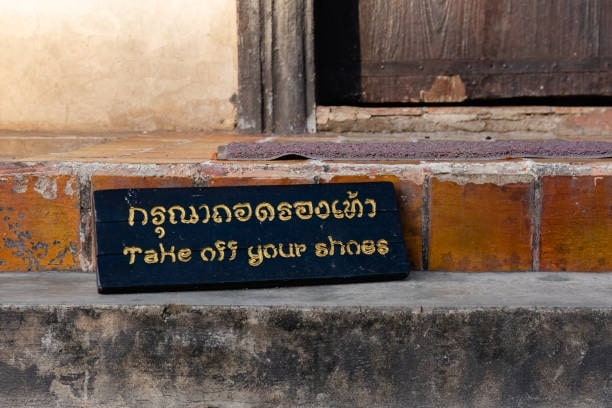
A common practice in Thai culture is to remove your shoes before entering homes, temples, and certain establishments. This is considered a sign of respect and cleanliness.
Always look for a shoe rack or observe if others are removing their shoes, and follow suit. It’s a small gesture that demonstrates your understanding and appreciation of Thai customs.
Local tip: Opt for shoes that are easy to slip on and off, as you will need to remove them before entering the temple. Avoid shoes with complex laces or multiple buckles that can be time-consuming to take off and put on.
Follow Buddhist customs in temples
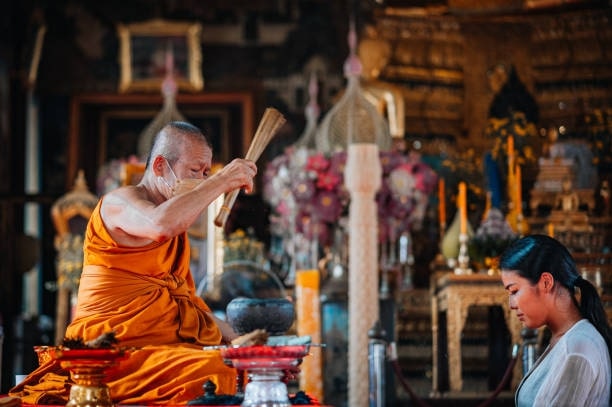
When visiting Buddhist temples, it’s important to be respectful and follow certain customs. Avoid pointing at Buddha statues, as it’s considered disrespectful.
Additionally, refrain from loud talking, and keep your voice low and calm as a sign of reverence.
Local tip: Before taking any photographs inside the temple, check if it is permitted. Some temples may have restrictions on photography, particularly in areas of worship or around specific statues or artefacts.
Eat local street foods
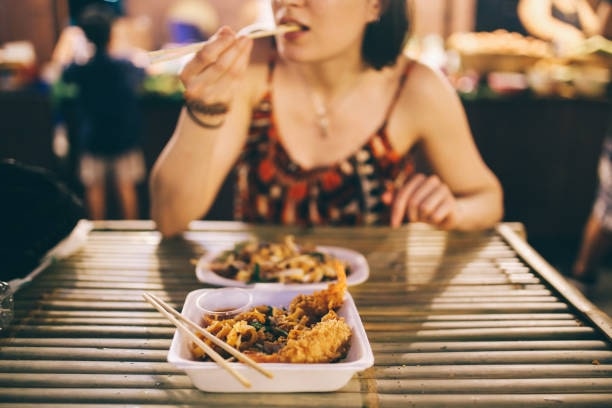
Thailand is renowned for its delicious street food, offering a wide variety of flavours and culinary delights. We recommend embracing the local food culture and indulging in the mouthwatering dishes available from street vendors.
Not only is it a cost-effective option, but it also allows you to experience the authentic flavours and immerse yourself in the vibrant food scene of Thailand.
Local tip: Look for vendors with a steady stream of customers, as it indicates the popularity and quality of their offerings. Follow the locals’ lead and try popular dishes such as pad thai, som tam, or mango sticky rice.
Use local transportation
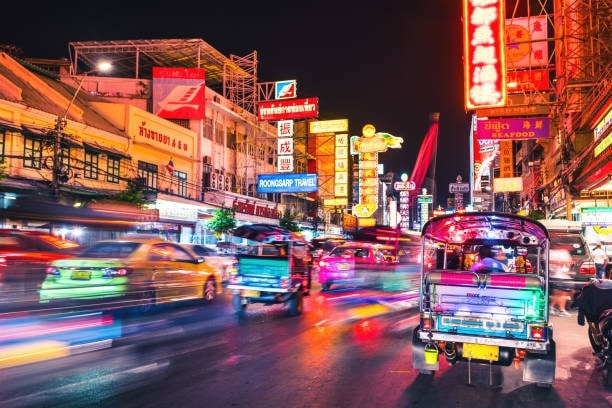
Exploring Thailand using local transportation is not only budget-friendly but also provides an opportunity to experience the local way of life.
Utilise options such as tuk-tuks, songthaews (shared taxis), and public buses for shorter distances. They are often cheaper than private taxis and can take you to various destinations.
For longer journeys, consider taking trains or boats, which offer comfortable and scenic rides to explore different parts of the country.
Additionally, ride-sharing apps, like Grab and Bolt, have gained popularity in Thailand, providing another convenient and efficient means of transportation.
These apps offer the convenience of hailing a ride with just a few taps on your smartphone, and they can be a reliable option, especially in busy urban areas.
Local tip: Pay attention to the negotiated fare or use metres for taxis.
Bargain at markets and street vendors
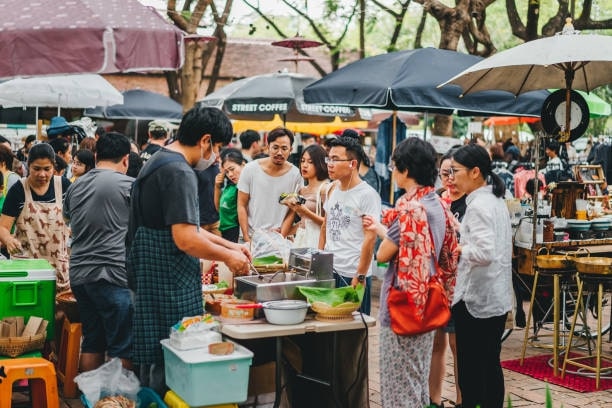
When shopping at markets and dealing with street vendors in Thailand, bargaining is a common practice.
Don’t be afraid to negotiate the price, as it’s expected and part of the shopping experience. Remember to be polite, friendly, and maintain a respectful attitude while haggling for a fair price.
Local tip: Start by offering a lower price than the initial asking price and negotiate from there.
Use mosquito repellent and sunscreen

Thailand’s tropical climate can bring both intense sun and pesky mosquitoes. Protect yourself by using mosquito repellent to ward off any potential mosquito-borne diseases.
Look for a mosquito repellent that contains an effective ingredient like DEET, picaridin, or lemon eucalyptus oil.
Additionally, don’t forget to apply sunscreen to protect your skin from the sun. Opt for a broad-spectrum sunscreen that protects against both UVA and UVB rays.
Look for a sunscreen with a Sun Protection Factor (SPF) of 30 or higher.
Local tips: Mosquitoes are most active during dawn and dusk, so take extra precautions during these times.
Apply sunscreen generously to all exposed skin, including your neck, face, ears, and any other uncovered areas. Don’t forget about easily overlooked areas like the back of your neck, tops of your feet, and ears.
Be cautious of street food hygiene
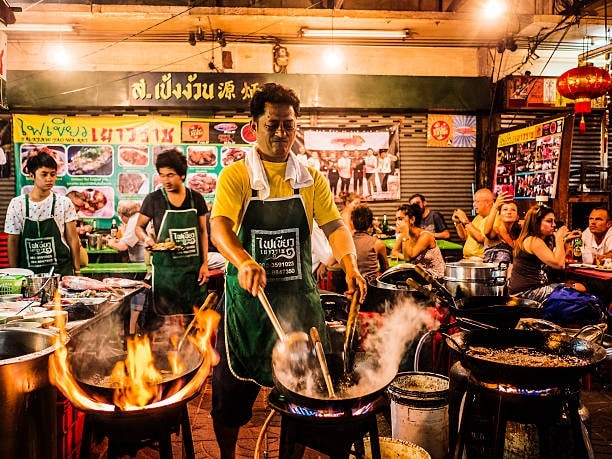
While Thailand’s street food is delicious and enticing, it’s essential to be mindful of hygiene practices. Choose vendors with clean food preparation areas and opt for fully cooked dishes.
Avoid consuming raw or undercooked foods, and make sure to drink bottled water or use a water purifier.
However, when you want to explore the exotic street foods in Thailand, watch how the food is prepared to ensure that it’s freshly cooked and well-prepared.
Local tip: Choose stalls that have a high turnover of fresh food and are busy with local customers.
Take precautions against scams

Like any popular tourist destination, Thailand has its share of scams. Stay vigilant and be cautious of common scams such as overpriced tuk-tuk rides, gem scams, and unauthorised tour operators.
Research beforehand, use reputable services, and rely on trusted sources for recommendations.
Local tip: If something feels off or too good to be true, trust your instincts. If a situation or deal doesn’t feel right, it’s best to err on the side of caution and avoid getting involved.
Respect local laws and customs
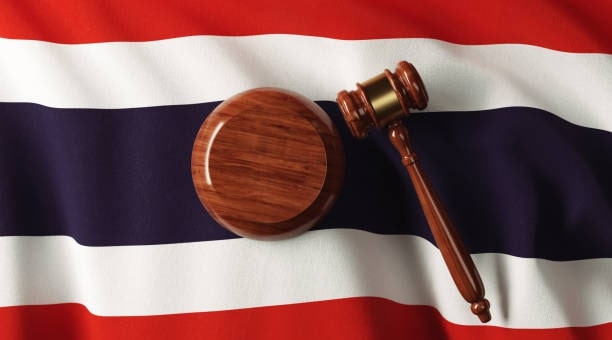
When travelling in Thailand, it’s crucial to respect the local laws and customs. For example, avoid public criticism of the monarchy, dress modestly in religious sites, and adhere to local regulations regarding substances and behaviours.
Local tip: Familiarise yourself with any specific rules regarding substances, wildlife, protected areas, photography, and public behaviour.





